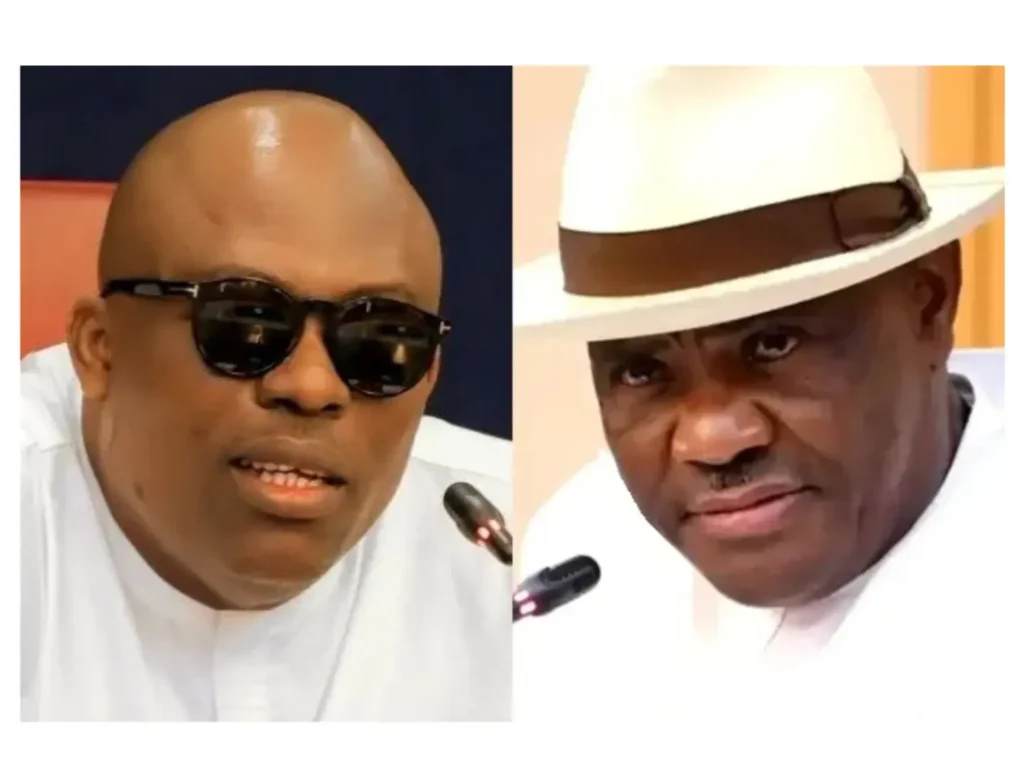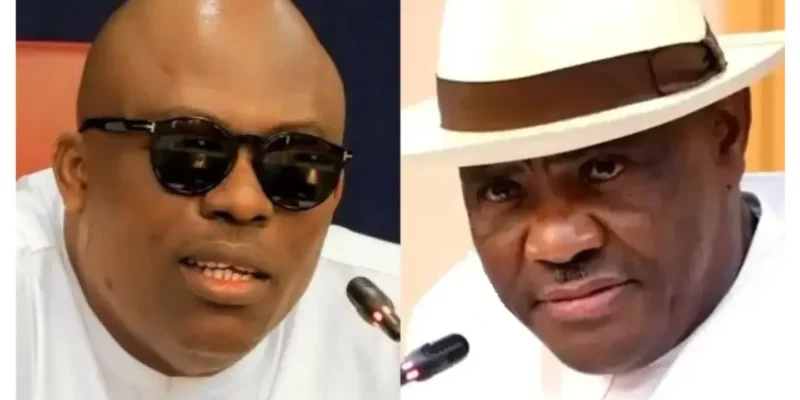
The political rivalry between Rivers State Governor Siminalayi Fubara and his predecessor, Barrister Nyesom Wike, has reached the Supreme Court, where five separate cases have been filed by both camps. The apex court has fixed February 10, 2025, for the hearing of these cases.
During proceedings on Monday, a five-member panel led by Justice Uwani Musa Aba-Aji ordered an adjournment to enable all parties to file and exchange necessary documents. To streamline the process, the court granted a request from Joseph Daudu, SAN, representing the Wike camp, to consolidate four of the appeals for ease of determination.
The disputes stem from unresolved issues concerning Rivers State governance, including budgetary matters and the conduct of local government elections. A judgment delivered by Justice James Omotosho of the Federal High Court in January 2024 invalidated the presentation of the 2024 budget to a faction of the Rivers State House of Assembly loyal to Governor Fubara. The court ordered the governor to re-present the budget to the faction led by Martin Amaewhule, who is aligned with Nyesom Wike, now Minister of the Federal Capital Territory.
Following this, Justice Joyce Abdulmalik of the Abuja Federal High Court directed the suspension of federal allocations to Rivers State until the budget was presented to the Amaewhule-led assembly. While the Court of Appeal in Abuja upheld Justice Omotosho’s decision, it overturned Justice Abdulmalik’s ruling, citing procedural injustice.
In a separate ruling, the Court of Appeal also reversed a decision by Justice Peter Lifu of the Federal High Court, which had invalidated the October 2024 local government elections in Rivers State for alleged non-compliance with the state’s electoral laws.
Monday’s proceedings saw robust legal representation from both camps, with about 50 Senior Advocates of Nigeria (SANs) appearing in court. Governor Fubara’s legal team was led by Chris Uche, SAN, while Wike’s camp was represented by Joseph Daudu, SAN.
The Supreme Court’s decision on these cases is anticipated to have significant implications for governance and political dynamics in Rivers State.

Comments